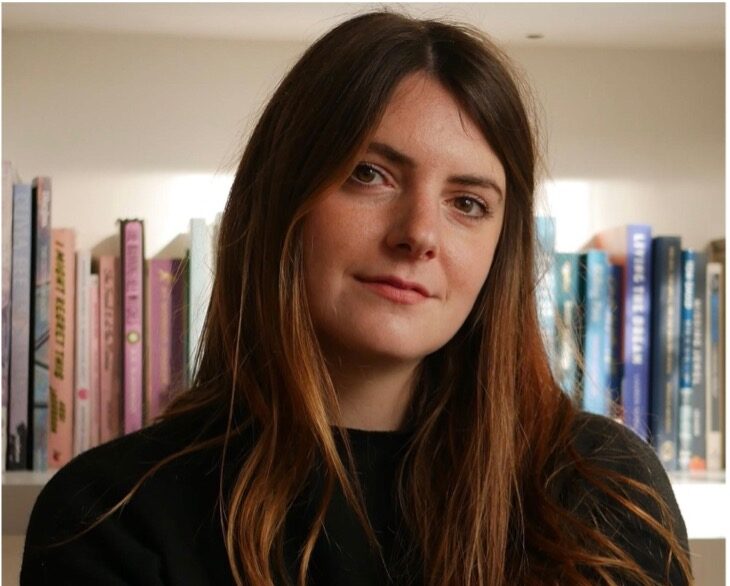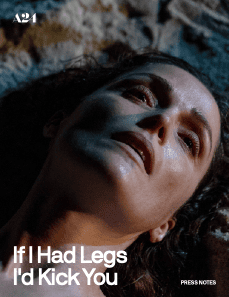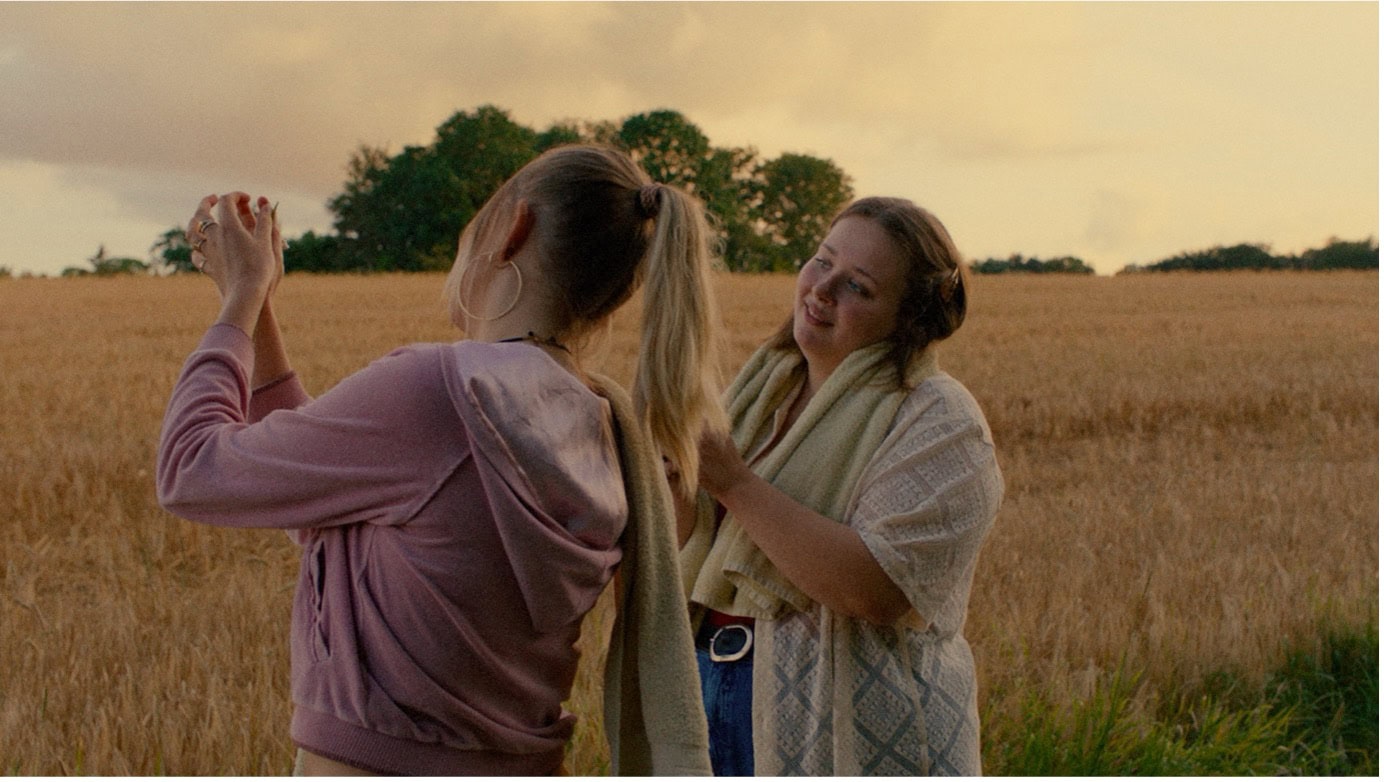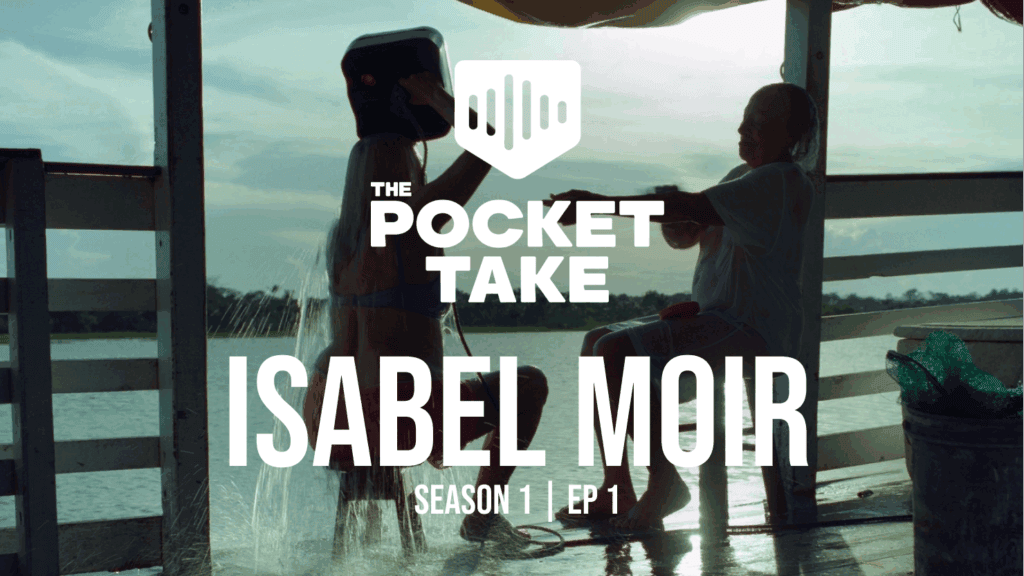Cinema for everyone at LFF 2025
BFI’s annual London Film Festival is promising – yet again – to deliver a program which has something for everyone.
From the hugely anticipated films featuring in the Opening and Closing Galas, such as Rian Johnson’s third instalment in the Knives Out series Wake Up Dead Man: A Knives Out Mystery, all the way to feature films from new directors such as Vincho Nchogu’s One Woman, One Bra and immersive installations such as NOWISWHENWEARE (the stars) created by Andrew Schneider, LFF 2025 has it all!
We caught up with LFF 2025 programmer Isabel Moir on the Pocket Take podcast to find out more about who’s behind the curation of the festival’s world class lineup, how they do it and what really makes LFF so unique.

“I’m part of the programming team, working alongside a selection committee who also contribute to building the programme. Throughout the year we’re viewing films, visiting other film festivals, tracking films and building relationships with sales agents, distributors and filmmakers to see what films will be available at the time of the festival.
“I also host Q&As with the visiting filmmakers – being able to facilitate the sharing of their experiences with the festival’s audience is a really lovely highlight, especially after such an extensive period of planning.”
Isabel Moir
What Makes the London Film Festival Special
What is it that sets the London Film Festival apart from so many others around the world? For Isabel, it’s all about the audience — their curiosity, energy, and passion for cinema.
“We want the viewers to feel included and encouraged.”
“It’s the festival I’ve been going to since I was a film student when I first moved to London. It’s really exciting to be kind of on the other side. I think what’s really interesting and important about LFF is that we are an audience-facing festival, which is not the case for a lot of the international festivals. Therefore, we’re always thinking about the audience first when we make any kind of programming decisions.
An important part of LFF is not just only helping London and UK audiences see films early on in their release that may not get wider distribution, but also enabling people to engage with the filmmaking team and ask them questions.
“We’re really lucky that the London audience is extremely enthusiastic and adventurous with their choices and ask really great questions.”
Showcasing UK talent and giving an international platform to first features as well as established British filmmakers is also important to Isabel & the team. “We have films like My Father’s Shadow, Dreamers, High Wire, Pillion, just to name a few.
 As for curation of specific themes, festival programming’s often more about keeping an open mind and seeing what emerges from the .
As for curation of specific themes, festival programming’s often more about keeping an open mind and seeing what emerges from the .
“For example, this year there are some really gorgeous films about mothers and their relationships with their children, kind of exploring boundless love and also the struggle involved.
“There are some great films such as Love Me Tender which Vicky Krieps stars in, as well as If I Had Legs I’d Kick You.”
(Mary Bronstein, 2025)
Getting the Most Out of LFF 2025
With so much on offer at the London Film Festival, where do you even start? Isabel has a few insider tips for making the most of it all.
“A great way to do that is to explore the amazing venues we’re so lucky to be partnering with,” she says. Think the Prince Charles Cinema in Soho, or the Curzon Mayfair — iconic spaces that add their own magic to the experience.
But it’s not just about the headline gala screenings. How do you get closer to the creative heart of the festival? “We have our competition strands,” Isabel explains. “It’s a really great way to be part of the conversation and see the films we’ve highlighted for the audience.”
Those strands include the Best Film, Sutherland First Feature, Grierson Documentary, and Short Film competitions — each celebrating excellence in different forms of storytelling.
And beyond the screenings? “We have talks, DJ nights and family workshops,” Isabel adds. These are more than side events — they’re chances to connect, learn, and celebrate the joy of film together.
Because at its core, the festival isn’t just about watching movies — it’s about being part of a community that lives and breathes cinema.
Film festivals have always been about discovery — not just of stories, but of voices. This year’s programme is packed with films that shine a light on women’s experiences from around the world, both through new work and rare restorations.
“We love being able to shine a light on these kinds of subject matters,” says Isabel. “And especially the female experience.”
Among the LFF highlights is The Girls (1978), described by Isabel as “a sensitive portrait of women’s status in Sri Lanka.” It’s a key work from pioneering filmmaker Sumitra Peries — and this marks the first time it will be shown in the UK. “It’s a really rare chance for audiences to see some of these works on screen,” Isabel adds.
New female filmmakers also feature strongly. How do coming-of-age stories today explore grief, desire, and identity? Two films stand out in particular: Têtes Brûlées, “a deeply affecting feature about a young girl’s experience of grief in a close-knit community in Belgium,” and Weightless, a Danish film set in a summer wellness camp, offering what Isabel calls “a candid yet sensitive and bold exploration of illicit desire and the controlling notions of wellness and body image.”
“These are the ones I’d seek out if you’re interested in new female filmmakers,” Isabel suggests.

“Weightless” (Emilie Thalund, 2025)
Opening Cinema Doors for the Next Generation
How do festivals ensure that young audiences can access these kinds of films?
“We have a really great scheme for people 25 and under,” Isabel explains. “You can go and see films at the festival for only £6.” It’s a simple but effective initiative: “We really recommend taking full advantage — whether you’re trying to see bigger titles or take a chance on a smaller hidden gem.”
Because for Isabel, it’s not just about showcasing stories — it’s about inspiring the next generation to seek them out.
Discover the world’s best new films, series and immersive storytelling at the 69th BFI London Film Festival.


